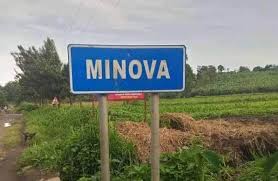The Child Care, Protection and Justice Act of Malawi defined a child as anyone below the age of 16, contrary to 18 as stipulated by the African Charter on the Rights and Welfare of the Child, ratified by Malawi. Thus, more than 438 persons between the ages of 16 and 18 in conflict with the law in Malawi were subjected to the adult justice system and were jailed in prisons along with adult offenders, without access to any form of education. In collaboration with Eye of the Child – EYC (a Malawian organization), IHRDA engaged in strategic litigation (before the High Court of Malawi ) in the case of Ex parte: Stanford Kashuga, to make the Malawi Government reform its domestic laws, and enhance treatment of children in conflict with the law.
We got a favourable judgment on 4th February 2015 which has led to:
- Review of 263 cases involving children – IHRDA and its partner EYC sent a request to the Chairperson of the Case Review Board. Hon. Justice Fiona Mwale who responded favourably to the request by issuing a memorandum granting permission for a team of EYC, Child Social Welfare Officers, Paralegals and Child Protection Officers, to urgently assess all files and collect data of all Children who are in Prison for her committee to quickly review and make fresh orders that would be in conformity with the law. EYC with support from IHRDA submitted its first report involving 263 children cases to Justice Fiona Mwale of the Board of Visitors on 24 April 2015. Based on the directive from Justice Fiona Mwale, the Case Review Board indeed received 263 cases involving children which it has already reviewed. This means more almost 300 children who were previously in detention or in prison have benefitted from the said judgment and have consequently regained their freedom.
- A change in the attitude of Malawi Parliamentarians – EYC held series of face to face meetings with members of the Malawi parliament impressing the need to amend the relevant provisions of the Child Care, Protection and Justice Act in accordance with the ruling in the Kashuga case. The Malawian Parliament has indicated its willingness to amend the Act very soon.
- Getting UN Women’s involvement – EYC held a meeting with UN Women to discuss ways it could help in implementation of the Kashuga judgment. UN Women is interested in sponsoring a local stakeholder conference to develop an advocacy plan on the age of the child under Malawian law.
- Getting the Malawi Police to respond favourably –EYC and IHRDA sent a petition to the Malawi Police Service following the Kashuga judgment and the latter responded favourably by sending a notice to all prosecutors in Malawi to the effect that from March 2015, all persons below the age of 18 years should be treated as children.
- Getting the Registrar of the High Court to follow up – EYC and IHRDA sent a letter to the Registrar of the High Court of Malawi following the Kashuga judgment and the latter responded by sending a memo to all magistrates in Malawi to treat all persons below the age of 18 years as children.




